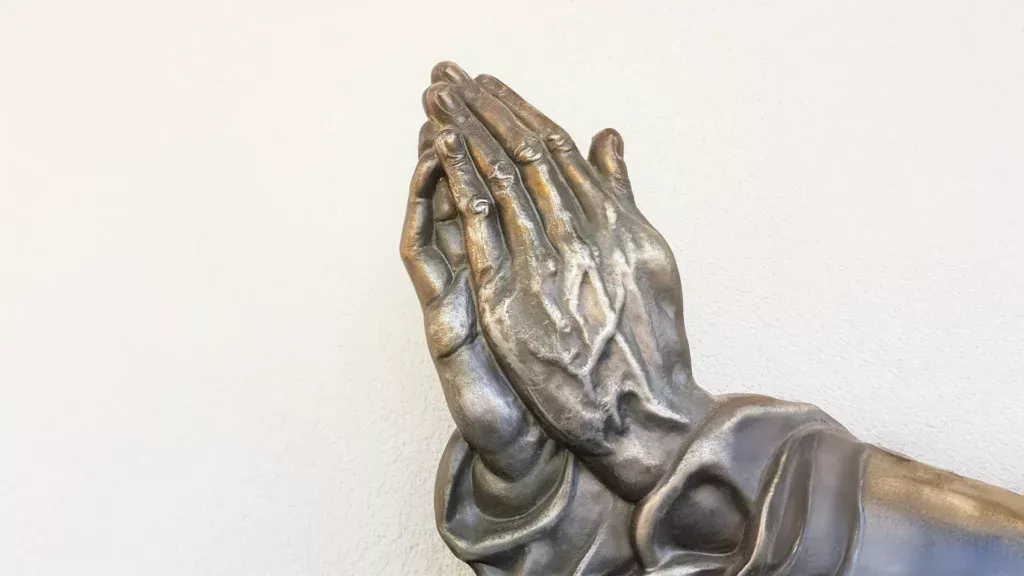Church Life
How does pastoral care work at TVC?
One of the wonderful advantages of belonging to a Christian community is that you get surrounded (at least in theory) by a bunch of people who care for you. God loves everyone, and so our job as the church is to love everyone the way God loves them.
•

It’s a very simple principle. However, it’s an organisational reality that at some point this care needs to be formalised. When we put processes around looking after each other, we call it ‘pastoral care’.
In very small churches, pastoral care tends to happen on its own. It’s easy to spot when someone isn’t around, or isn’t doing well. The community jumps into action. Meals get delivered, phone calls get made, people feel seen. Amazing.
But what happens when churches grow? Suddenly, it becomes easier for people to fall through the cracks. We’ve all heard stories about churches getting pastoral care wrong. This should never happen, but it does. All the time.
Models of pastoral care
At TVC, we’re on the tipping point where some structure around pastoral care would be helpful. So how will that work? We’re glad you asked. Here are 3 options:
1 — Pastor-led pastoral care
The default assumption for many is that pastors are responsible for pastoral care. That’s a fair guess — it’s in the title right?
The big advantage of this model is that the ‘who is responsible?’ question is very clear. In a crisis, the pastor makes the phone calls, does the hospital visits, and coordinates the prayer.
However, the big disadvantage should be pretty obvious. Pastoral care can be a lot of work, and for one person, it’s probably a full time job. Churches that use this model don’t tend to grow because all the leader’s energy goes into looking after people. That’s not bad as such, if that’s the kind of church you want to be. But from my reading of the scripture, the church’s job is larger than just caring for its members.
Scalability in this model means hiring more pastors as the church grows.
2 — Team-led pastoral care
To overcome the pitfalls of the pastor-led model, many churches put together a pastoral care team. This is a group of volunteers who take on ownership of looking after the church. There are a virtually unlimited number of ways this can work. Sometimes it’s small group leaders, other times it’s area coordinators (like youth leaders, family pastors, etc). The team is often volunteer led.
The advantages of this are obvious. Sharing the load means leaders can lead. With many people taking responsibility, people are less likely to slip through the cracks.
But at the same time, distributed responsibility often gives rise to the ‘bystander effect’ — everyone thinks someone else was on it, and people fall through the cracks. Furthermore, pastoral care is a big job for volunteers, and not everyone in the church will know them (congregants are much more likely to recognise the pastor/s, and go to them for help).
3 — The ‘self-pastoring’ church
In Vineyard churches, we love to remind people that ‘everybody gets (and needs) to play’. The self-pastoring church is an application of that principle to pastoral care. The focus is on building a culture of mutual care. The scalability of this is limitless, because every time another person joins the church, the pastoral care team grows.
This is fantastic in theory but the downside is obvious. In principle, everyone taking responsibility means no one takes responsibility. Yet this is our preferred model for pastoral care at TVC. Why?
Making self-pastoring work
As I’ve already suggested, the self-pastoring model has strong value-alignment for us as a Vineyard church. Leaving ministry to paid professionals isn’t our thing. Pastoral care is part of our job as the church, meaning it’s the job of the whole church.
In essence, the key to an effective self-pastoring church is all about culture. The idea is that everyone makes an effort to form meaningful friendships. When your friends aren’t at church, you notice, and you reach out. When your friends are struggling, you help out. When your friends need prayer, you pray.
When things get really rough for people, or if you find yourself in a situation you’re not equipped to help with, you pass it up the chain. You get in touch with Jen or I, and we can help coordinate a response.
(It’s worth noting here that Jen and I don’t offer pastoral counselling. Our preferred style is ‘listen and refer’—we’re certainly here to listen, but we would rather point you to trained professionals who are equipped to go through the weeds with you. It’s not because of any lack of care, quite the opposite!)
Summing it up, pastoral care at TVC is about learning to be a community who genuinely care for one another, loving and serving each other as Christ taught us. However, Jen and I are there to act as a backstop so that people don’t slip through the cracks.
In our experience, this model works beautifully in a church of our size, and scales up well. At some point in our growth this will get reviewed, and the introduction of a team will make sense. In the meanwhile, let’s be good to one another and love each other the way that God does!
More posts

2026: The year of experiments
What does it look like to live out our Matthew 11:28-30 vision in 2026? We’re glad you asked…

A prayer for our enemies
In an increasingly divided world, praying for our enemies is a profound act of resistance. Here’s a helpful framework.

What is Christian Fundamentalism? A brief overview, and how to respond in love
As a church, we talk a lot about transforming culture. But to transform something, we first have to understand it.
How to connect
Are you looking for a church to call home? Want to learn more about Jesus or Christianity? We’d love to connect. You can get in touch at the link below, or visit us on Sunday.
Leave a Reply